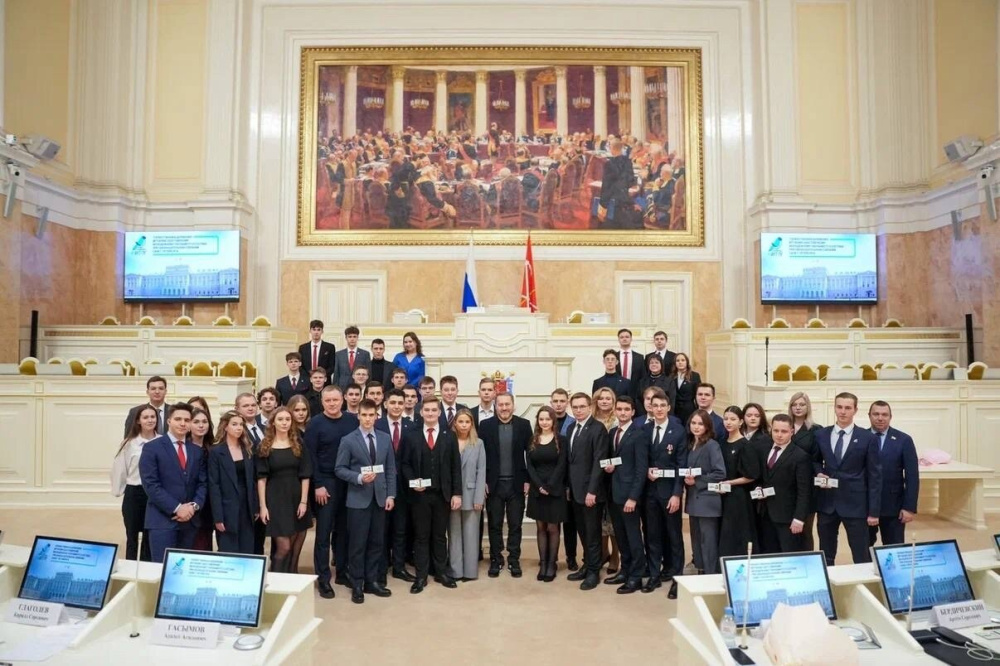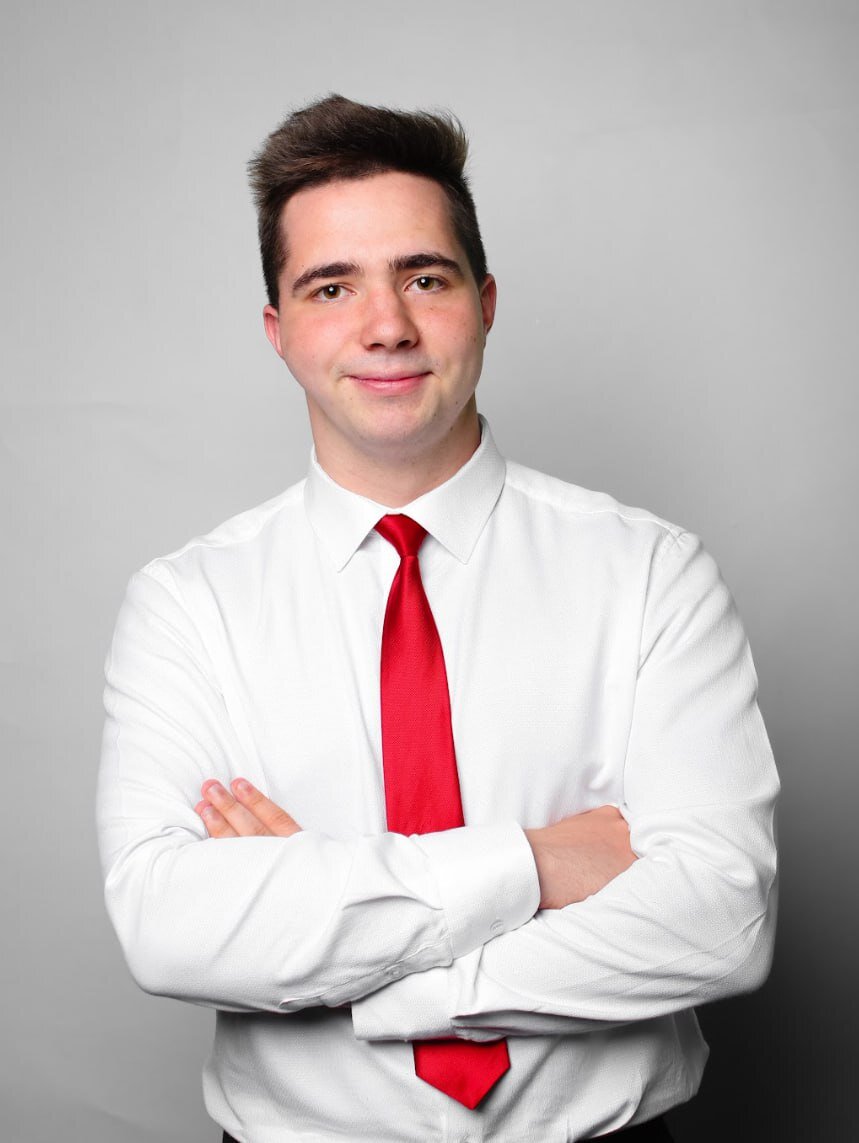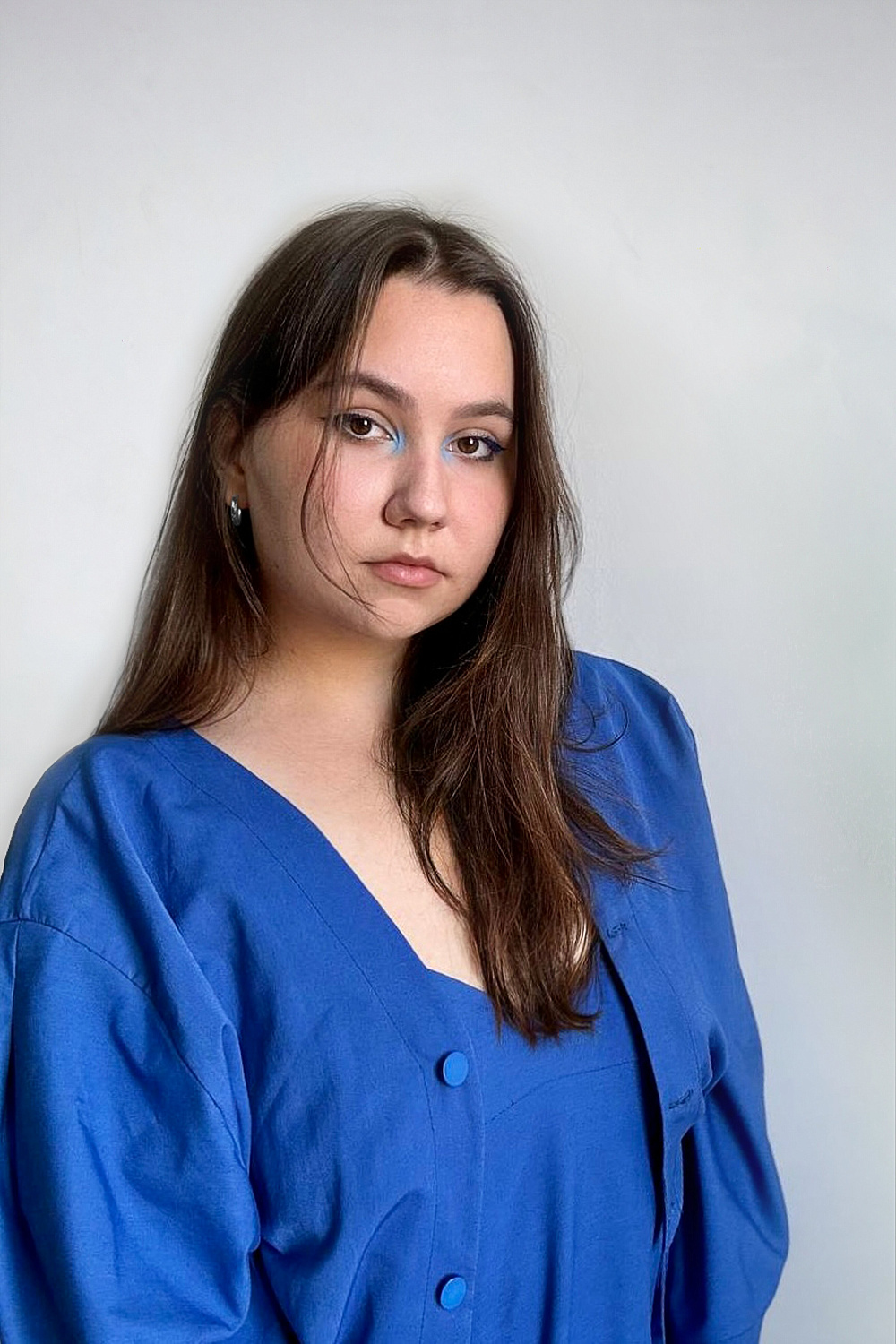 Participants of the Youth Parliament in the Legislative Assembly of St Petersburg
Participants of the Youth Parliament in the Legislative Assembly of St Petersburg
Volunteering is helping with specific actions, and an active life position is promoting and implementing initiatives for the benefit of society. This is the motto of the first deputy chairman of the SPbGASU Student Council, head of the Open For Students project Ivan Baranovsky (a third-year student of the Faculty of Environmental Engineering and Municipal Services) and the editor-in-chief of the SPbGASU Student Council Aleksandra Polyanskaya (a second-year master's student of the Faculty of Architecture). They have already accumulated a solid baggage of good deeds, successfully implemented many ideas and, as they admit, do not intend to stop there. We talk to them about their initiatives, supported by the Youth Parliament under the Legislative Assembly of St Petersburg, and the priority areas that they are developing.
– How did your path to social activity and volunteer movement begin?
Ivan Baranovsky: The path of volunteering began in elementary school. What prompted it? Probably a simple desire to help. I realized that seeing happy faces in response, for whom you try to do something without asking for anything in return, is the most pleasant result. I get pleasure when I help people. Our university has a well-developed student government, thanks to which volunteering develops. In fact, we all do volunteering in one way or another throughout our lives: we help friends, the elderly, strangers. It became the starting point for me in active social activities.
Aleksandra Polyanskaya: I started doing social work back in the St Petersburg State Academy of Art and Industry named after A. L. Stieglitz, where I joined the team of a grant project to create a media center. I have always been attracted by the opportunity to turn ideas into real products that others see and appreciate. And when I entered the master's program at SPbGASU, I decided to continue what I had started: I joined the student council, completed the POTOK and Open for Students training programs. I wanted not just to study, but to create events, help the guys from the university, and develop the media direction. Volunteering and activism gave me the tools for this - from organizing events to working with people whose stories inspire.
– What areas of volunteering are particularly in demand today and how are they developing in our university and the city?
Aleksandra Polyanskaya: Media volunteering and projects related to patriotic education are in high demand now. For example, our university requires organizers, content creators, photographers, videographers, and designers to hold the events of the Golden Faculty or Architectural Seasons. This is a large team of diverse specialists, primarily from the Student Council Media Center, which trains these specialists to join its team under the Open for Students program. In addition, we are actively developing the media direction: in the last year alone, we have launched websites for elections, Olympiads, and workshops using neural networks. Such skills help activists in life: thanks to them, they can find a decent part-time job while studying. In St Petersburg, there is a growing demand for projects that unite young people around common values: for example, helping the families of SMO participants or preserving historical memory. The state supports and encourages activists. Thus, Ivan received two honorary medals for his active civic position and contribution to public life.
Ivan Baranovsky: When I learned about the awards, I was quite surprised: yes, I volunteered at the call of my heart, often went and collected humanitarian aid to the SMO zone, participated in charity events, helped the families of SMO participants, but I didn’t even think about any award. The first medal was awarded for support to the Special Military Operation. The second medal, “Active participant in the volunteer movement,” is for activities in the field of volunteerism.
– What skills does active social work help develop?
Ivan Baranovsky: Being active in public life develops communication and management skills, and most importantly, the ability to motivate your team to implement a project at the idea level. The Student Council is a small test drive of adult life: here you gain a lot of experience and expand your circle of acquaintances for the realization of yourself and others. The city has many opportunities for the comprehensive development of students, many youth organizations that also develop volunteering in one form or another.
Aleksandra Polyanskaya: Working in the Student Council of our university allows you to discover incredible opportunities in yourself that you never even knew about! Student Council events became one of the compelling reasons for me to enroll in the master's program at SPbGASU. Self-development in these areas is inevitable. For example, for the needs of the Student Council to implement our collective ideas, I mastered web design and the basics of UX/UI, although I had no experience in this area before. Organizing a workshop on neural networks for Young Design forced me to immerse myself in the world of AI tools in order to explain them clearly even to beginners. In general, volunteering for me is an opportunity to live thousands of lives at once, try myself in completely different areas and improve in what I already understand. Recently, Ksenia Vitsina, chairperson of the SPbGASU Student Council, noted that after the student council, our guys want to work in the same active team, with a developed corporate culture.
– You are taking part in the Youth Parliament of the Legislative Assembly of St Petersburg of the second convocation. It is appropriate to note your personal growth. What are your achievements in this area?
Ivan Baranovsky: The Youth Parliament of the Legislative Assembly of St Petersburg is an advisory and consultative body that works on a voluntary basis. Its goal is to facilitate the activities of the Legislative Assembly in the area of legislative regulation of the rights and legitimate interests of young people. Our team of four people put forward an initiative to completely update the design of contactless smart cards (CSC) and contactless electronic smart cards (CESC). This initiative passed the second reading, now all that remains is to hold a competition for the best design. I hope that this summer the design of the cards in St Petersburg will completely change.
I am also developing two initiatives for federal legislation: the first concerns the rules for advertising placement, the second is to supplement the Federal Law "On the Protection of Consumer Rights" (No. 2300-1). I will be able to tell you more about it later.
Aleksandra Polyanskaya: The Youth Parliament is a structure that helps active young people influence the life of the city. Here we support youth projects, interact with the city administration and promote ideas that are aimed at improving the life of the city and, in the long term, the country. Now, for example, we are developing socially useful ideas for federal legislative initiatives. I am working on ideas for the Federal Law on the Protection of Cultural Heritage, including the topic of zoological parks, which overlap with my master's thesis. This topic combines two areas that excite me at once - architecture as a life's work and love for animals.
We have just started our activities in the Youth Parliament, but I am sure that there is a lot of good ahead, as we receive incredible support from the curator of the Youth Parliament, Advisor to the Legislative Assembly of St Petersburg Maryana Borisovna Yakovleva.
Ivan and I are on different committees, but I promote and defend his legislative initiatives, and he helps me with project ideas. Our personnel reserve also includes the head of the SECOND HOM project, a student of the Faculty of Civil Engineering, Olga Kostyleva.
– How do you manage to combine your studies with active social activities? And what plans have you outlined for yourself?
Ivan Baranovsky: It's hard to combine. But I don't intend to retreat: I need to successfully graduate from university, enroll in a master's program, and implement all the ideas I have planned for 2025.
Aleksandra Polyanskaya: Strict planning helps to combine studies with active social activities. Without it, everything turns into chaos from a large number of different tasks. In such cases, notepads and reminder apps help. Although in reality, sometimes it is extremely difficult to manage everything due to the workload and specifics of the Faculty. I prioritize my studies.
At some point, there were so many tasks that I wanted to have a separate person to plan them, but nothing is impossible. You can contact Ivan and me on the topic of legislative and project initiatives: for example, now we are working on helping the SECOND HOM Student Council project hold the Russia-China festival. Ivan works more with projects, and I - in the field of legislation, mainly related to architecture and construction. Now I am also trying to improve my knowledge of legislation in general. At present, we are developing ideas for federal initiatives to solve certain problems. One of them is to provide students studying in a specialized field with the opportunity to participate in the examination of cultural heritage sites. I think it is very important for students to prove themselves in the professional field even before receiving a diploma, in order to gain initial experience. Then they are more likely to work in their profession, and good young people will come to the industry.
I plan to enroll in PhD school and do not rule out that I will stay to work at the university in order to motivate the younger generation to take an active life position both in the professional environment and in public life.



